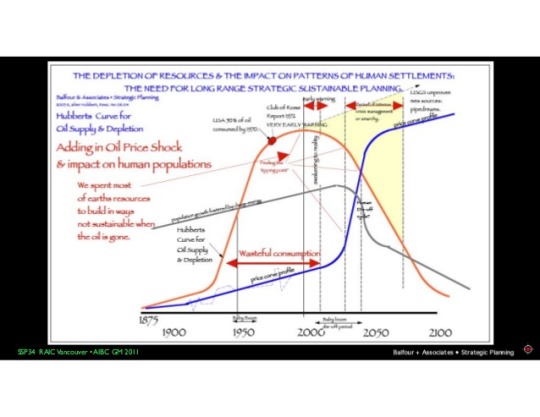#just some classic jewish hysteria
Text
can’t us jews just have one day of the traditional fight between ourselves over hamantaschen flavors before you flood our tags with all of your antisemitism lecturers and goysplaining
#y’all becoming real touchy with the word antisemitism so i covered it for you#yanno so you don’t feel like it’s against your super peaceful values#just some classic jewish hysteria#them dumb jews not getting tHe pOiNT#antisemitism#jumblr#the jews are tired#SO SO TIRED
21 notes
·
View notes
Text
The Imposition of Unnecessary Obstacles

The Imposition of Unnecessary Obstacles by Malka Older
i adored The Mimicking of Known Successes and was so excited to get to read the galley of this follow up!! and Older did not disappoint, this adventure has all the charms of the first book and then some.
what i loved best was the deepening and connecting of all the plotlines. the first book reads like a fairly light mystery and very lovely relationship arc, with just enough worldbuilding to give almost literal structural support (if you haven't read these books yet, the characters live on a series of rails and platforms above the gas giant Jupiter). this book could have coasted on just being a second case for these two compelling characters as they further their relationship, but it doesn't!
we get Mossa and Pleiti's nice relationship stuff, yes, with all the doubts and sweetness of that, but also we get more complex politics! we get Mossa background! we get more about the abandonment of Earth, and this new society's different ways of dealing with the loss and the longing for it! we get all of these things connected, in a more fully realized social structure than i was expecting, and i was thrilled by it. i would read a hundred more books about their weird social strata and Pleiti continuing to come to terms with the inequities of the system she's working in and Mossa's enthusiasm for her home and the two of them learning how to be together in more and more equal and solid ways.
also, this is a small thing, but the language of this book was interesting! there were a number of peppered-in loan words from other languages, most of which i was familiar with but some i wasn't, giving a fascinating sense of the evolution of language in a place where the national and cultural borders of Earth have been shaken up or gotten rid of or redrawn. (gotta say, i laughed out loud when Pleiti described an elderly faculty member as genki.) oh also also? there are some appearances by a character who uses the neopronoun "ta" which just feels supremely British and the best possible choice for Holmesiana in space, i laughed so much about it. a hugely delightful read all around.
the deets
how i read it: an e-galley from NetGalley. my NetGalley tbr for the spring is v long and exciting!!
try this if you: loved the first book obv, are into the current crop of sff about the new societies humans build after Earth goes tits up, have to yell and pace around the room when characters who are not easily affectionate show their deep affection, or delight in a good casefic
some bits i really liked: ✨Jewish Mossa?!✨ references that made me lol! hysteria!
"My father died some years ago--" ("May his memory be a blessing," I murmured, and she dipped her chin in acknowledgement).
---
The father of Strevan lived in a type of construction known as a hobbit house, presumably because no matter how vague your grasp of Classical literature, that still sounded cozier than bunker. It was built into an artificial slope in the plateau, and the door, I was disgusted to see, wasn't even round.
---
I insisted that they wire Mossa immediately. I insisted on this at length, with a fervor that would once have been attributed to a displacement of my internal organs, and to everyone I saw...
---
WELL DONE STOP OMW M
Those few words proved sufficient to distract me for some time. Omw was an archaism, a Classical expression meaning she was coming back; I spent an inordinate amount of time wondering whether Mossa would have used that expression with, say, one of her Investigator colleagues or whether it was a nod at my interests. After some time I understood that this was a ridiculous question and indicative of exhaustion, and I went to bed.
pub date: February 13, 2024! at the time of this posting, TOMORROW!!! Malka Older is doing a virtual book release event with Tubby & Coo's, maybe check it out!
#books and reading#booklr#bookblr#book recs#book reviews#queer sff#the imposition of unnecessary obstacles#malka older
1 note
·
View note
Text
Matt Christman on pseudo-experience and the ‘Uncut Gems’ death drive

Excerpted from Friday Vibestream: Alpha Sanction, Feb. 5, 2021.
Someone had a long thing in chat just now saying that we're a schizophrenic society because of the divide between our digital and real selves. And I think that's true, but I think it even goes deeper than that, because that is only a proxy for the greater, the deeper divide in the modern self between the chronologically grounded self—i.e., the body in space—and the mental, mind self that is unbounded by space or time. And the Internet is, more than anything, a tool to allow us to spend time in our bodies that is not processed chronologically, and therefore cannot accrue meaning because meaning must adhere to experience. And there is no experience to online. It is a pseudo-experience.
You get mad, and you get angry, and you get horny, and you get scared, but it's essentially your brain tricking you into feeling those feelings. And so what you assign the cause of those feelings is also made up by your brain, which is harder to do when the source of your emotional responses is a material interaction that occurs in a chronological space-time.
I was pretty old when I really got into the Internet and I think that's one of the reasons it wore off for me, because it was never as satisfying as it is for younger people because the contrast between a life that I had had or I imagine I could've had instead of it was greater. Whereas I think for younger people, the internet is taken for granted.
But that doesn't mean that a crack-up is not inevitable. We're in the process of a full social breakdown. But that doesn't necessarily mean the apocalypse or the end of anything. It means people are getting to the end of their particular ropes. The coping mechanisms we've created, they have a fuse. They don't last forever. There's only so much dopamine you can get from a pseudo-existence. And it's different for people, like some people it's longer than others. But everybody gets to a point, and I think we're all getting there.
And I think one of the big reasons that we've had this big explosion in political hysteria in the last year is 'cause of fucking COVID. And it's weird how we've normalized COVID so much that we forget that there's no way that I, anyway, can imagine things like QAnon occurring, the fucking Capitol breach occurring, without a context where our coping mechanisms have been radically reduced. The things we have had historically to allow us to vent, to compensate for the lack within our lives, are sucked in. And if that persists, it's only going to get weirder. I think we're in for weird, weird, weird times. But weird times are when new things emerge, by definition.
And that's something that—it's obviously scary but to me, it's less scary than the narrative that a lot of people have internalized of total social fixedness; of the idea that these categories are unchallengeable. And people have said that I say that, but I just mean that looking through the current structures, that is the conclusion to draw—but that doesn't mean that it's the correct conclusion. ...
The last movie I saw in a theater was Uncut Gems, which we talked about a little bit on the last episode about Trump movies, but I'd like to end here talking about how I couldn't really have picked a more perfect film becuase that movie is about the death drive of American society. I mean, I know it's specifically about, you know, Judaism and stuff and the Jewish experience, but it's part of a broader analysis of a people—Americans—who believe themselves to be eternal beings, but have physical bodies, and who can't reconcile those two things other than by subconsciously seeking death on their preferred terms.
Like the beginning of the movie he's getting the rectal exam and it's actually kind of up in the air, and I actually thought he was going to get a call halfway through that he had cancer. And then he gets the call, "Oh, I don't have cancer." Yet! Oh he doesn't have it now. That doesn't mean in five years he's not going to have it. That doesn't mean in ten he's not going to get it, and he even talks about his family history. He's probably going to get it. Does he want that? Does he want to wait around to fucking get chemo and get sick, the thing that everybody watches their family members go through with horror? Or, do you die on your own terms going out on top. And that is why that movie has a happy ending. He got what he wanted.
But in real life, you can't do that. And one of the reasons we're cracking up is that it's a society of Howie Ratners trying to dictate their end, but you can't know. You can't do it. Because you set it up and it doesn't come because you don't want to die in your conscious mind, and then it doesn't happen, and then you have to keep doing it, you keep doing the same thing, and it drives you into madness. And it's driving us all into madness.
It's especially funny seeing that movie right at the moment where Bernie looked like he might win, you know, before COVID happened. It's like oh, if you could pick a moment, wouldn't that have been the moment? But you don't get to pick the moment. You don't get to be Howie Ratner. He is a classic hero in the sense that he saw the moment, even though he didn't know he was seeking it, and he got his end. He got an end on his own terms.
12 notes
·
View notes
Text
TMA 164: Horror From History
Hello everyone!
Today’s TMA was super interesting to me in particular, as the study of historical outbreaks and pandemics is a special interest of mine (that I plan to go to grad school for). Listening to this episode, I was struck about the amount of historical references in this episode and felt a need to highlight the clear hard work and research the team put in for those interested. Those references are below the cut.
Below the cut are spoilers as well as discussion of all the trigger warnings in said episode along with discussions of historical imperialism and anti-semitism. I’m not going to get too gory or descriptive but just a heads up!
If you notice any errors with my facts or want to add something I missed , please let me know so I can correct them:
Onward we go!
The “sickness” symptoms: don’t worry, the illness described is not a real disease but some symptoms listed did allude to diseases that are responsible for outbreaks. Pox-marked is likely a reference to smallpox (more on that later), and they various symptoms mentioned are pretty much the “greatest hits” of outbreaks, add in some fungus and blended together. Gross.
The burning of “outsiders” at the stake (anti-semitism tw): Sadly, the burning of Ms. Kim is rooted in history. During the plague years, some areas and towns burned Jewish people at the stake, whom they blamed for the illness (a common assertion being that they poisoned the wells). Often Jewish residents were used as scapegoats and labeled as “outsiders” due to anti-Semitic beliefs. It’s a real atrocity about the plague that isn’t discussed enough.
Mold, Illness and Mass Hysteria: I don’t know if this was on purpose, but I don’t think so just given the ties. A theory of the cause of the Salem Witch trials is that the girls got sick and hallucinated due to infected grain. The grain was theorized to be contaminated with rye ergot, a fungus, which in fact is also used to make LSD for its hallucinogenic properties. Salem, of course, turned in upon itself, blaming their own neighbors as witches and burning them at the stake. Interesting considering the statement is also about mold that causes people to turn on one another.
UK/European Imperialism and Disease: European imperialism was responsible for one of the worst disease outbreaks in the Americas: smallpox. Smallpox was endemic to Europe but to the Native Nations of the Americas, smallpox was a new pathogen which their immune systems had no experience to. Smallpox is very deadly even to populations with historical exposure (1/3 is an estimate) but to these populations with no exposure, it caused fatality rates up to 90%. It’s an atrocity that many ignore in American History books, especially the fact that some of these infections were purposeful bio warfare against Native civilizations. The fact the villagers are blaming outsiders for disease while wearing masks with the colors of the Union Jack seems to allude to this in some capacity.
The part with skin (tw self harm): Western Medicine was rough for a long time, and often people had no idea what caused disease let alone how to treat it. Disease was sometimes chalked up to God’s punishment and during the plague years, a group of religious monks began whipping themselves from town to town as a sign of penance. Bloodletting was also a “cure” that falls in a similar vein (pun not intended, I honestly couldn’t think of a better word and I am sorry.)
Outfits: this one is pretty obvious but the all black covered from head to toe also is reminiscent of the plague.
Painting Doors with a red cross: This was also a common plague practice to identify those who had died or were currently suffering from plague. In fact, this can be considered an early form of disease tracing.
Xenophobia and Disease: xenophobia and disease sadly go hand and hand but the best classical example is the STD syphilis which countries often nicknamed based on countries they were at war with. People who were at war with the French called it “The French Disease,” people who were at war with Italy called it “The Italian Disease” and so on and so forth. Diseases being blamed upon a people or a place is not uncommon, and WHO guidelines ban naming new diseases after places for this very reason. “Typhoid Mary” who was also mentioned in this episode, while actually a carrier of Typhoid, had her Irish ancestry used to label her as “unclean.” There were “health checks” of immigrants at Ellis Island and people would be turned away if inspectors considered them “diseased.”
127 notes
·
View notes
Text
The Five Faces of Fascism (2005)
The Five Faces of Fascism
by Michael Novick, Anti-Racist Action-LA/People Against Racist Terror (ARA-LA/PART)
From Turning The Tide, Volume 18, Number 5, November-December 2005
Like the weather, everybody talks about fascism, but nobody does anything about it. Just like the barrage of deadly hurricanes that continue in record numbers this season are being fed by global warming of ocean waters, the growth of fascism is being fed by a key underlying reality. The Empire is coming face to face with its own limits and with the catastrophic consequences of its own self-destructive contradictions.
The economic “race to the bottom” of corporate globalization has de-industrialized the U.S. Simultaneously it’s created a massive over-capacity of production using labor priced below the cost of human reproduction in China, south Asia, and elsewhere.

There’s a concurrent race towards disaster between Peak Oil and Global Warming. On track one, we have the runaway train of economic and social devastation because of the soaring demand for a shrinking supply of petroleum and natural gas. On track two is the runaway destruction of the climate and the seas, through pollution by the gaseous wastes of petroleum. The only question seems to be how rapidly the tracks intersect and how total the smash-up will be.

Meanwhile, the endless war that hid beneath the surface of the “Pax Americana” has come out into the open. Domestically we see the Empire trying to contain social upheaval by militarizing the schools, the border, the police, and disaster relief. We also see the ineffectiveness of that military approach. Internationally, the US war machine is bogged down and bloodied in two land wars in Asia, Iraq and Afghanistan, trying to figure out how to deal with its problems by expanding them regionally.
In the face of these growing and intersecting crises in the political, economic and environmental spheres, fascism is once again rearing its ugly head. But like the crisis, fascism presents itself in a multi-faceted way. There are five main forces competing, contending and colluding in building a fascist response and “solution” to the problems of the Empire. Anti-fascist forces committed to human liberation and planetary survival must simultaneously challenge the Empire itself, develop solutions for the problems fueling the fascist response, and disrupt the fascist forces.
To do so, we need to get a clearer picture of the fascist elements and the contradictions among them.

Self-proclaimed Nazis, though not the largest or most serious threat, are a place to start. This is the element with the most naked racist approach, based on open white supremacy. They incorporate traditional nazi/fascist symbolism, and classic scapegoating of Jews. Particular groups within this tendency suffer setbacks, and ego drives rivalries between various “leaders.” But this faction has an opportunist tactical flexibility. It benefits from effective use of the media to magnify its forces and appeal. Nazis seize on every sign of racial friction. It appeals to younger whites with a sense of grievance about lost entitlements. They often present themselves as anti-establishment or even anti-capitalist, yet usually seek protection by the cops. They use methods of physical intimidation, as bullies do. But like all bullies, they are highly susceptible to organized physical resistance.

Clerical fascism is a second major component, also connected to an element of traditional fascism. It is based in religious fundamentalism, and often incorporates well-established and well-funded religious organizations, whether churches or lay fraternal groups. They base their appeal on a sense of moral decay under the Empire, but they are otherwise more than happy to operate within the mainstream and existing political institutions. In the U.S., we are speaking mostly about Christian fascist groups, which focus on anti-woman and anti-gay organizing, opposing abortion and other reproductive rights, gay marriage and similar issues. But in a global context, Jewish fundamentalism linked to a more secular, but still religiously-justified, Zionism is an important element of this tendency, and in the U.S., Christian and Jewish Zionists make common cause. In the colonized and semi-colonized Muslim world, Muslim fascist fundamentalism plays a role more similar to that of western Nazism, presenting itself as the voice of grievance, with an anti-establishment, “anti-imperialist” politics.

Anti-immigrant border vigilantes have resurrected the worst components of the old militia movement. They’re most interested not in replacing but in supplementing the power of the state. Although some elements engage in anti-corporate or anti-politician rhetoric, this faction, like the Christian fascists, are generally content to seek entry into, and work with, mainstream political power. Thus the Minutemen and such vigilante projects work with the Border Patrol, or run for elective office. They sponsor propositions targeting immigrants, particularly Mexicans, and work closely with Republican and some Democratic office-holders. While professing not to be racist, they also provide a convenient conduit and nesting place for nazi and white supremacist forces. For example demonstrators at anti-immigrant protests in Orange County, CA, showed up waving swastika and Confederate flags.
This is a growth area for a mass base for fascist solutions. The state legitimizes the use of extra-governmental armed force in direct anti-immigrant action. Anti-immigrant and anti-Mexican hysteria, an outlet for white grievance, has enabled these groups to spread, along with Mexican and Central American migrants, into the southeast, northeast, mid-west and northwest, from the US “southwest,” occupied northern Mexico.

An element within uniformed and clandestine military, law enforcement, and state security forces, operating independently of the official chain of command, is a fourth component of a fascist movement. This aspect has been somewhat dormant in recent years, at least in the U.S. But the increasing use of mercenaries by the Empire, as well as concerns within the ranks and the brass about the inadequacy of current domestic and international counter-insurgency efforts, is resurrecting it.

Continuing setbacks in Iraq and Afghanistan could increase this component dramatically, with a possible appeal among demobilized and disoriented veterans unable to find a productive niche in civilian life.

Fascist elements within the state, the governing party and the ruling economic and political elite are the fifth element, since fascism is built from above as well as below. The Bush forces have been willing to cement one-party rule through electoral fraud and coercion. They provide red meat and marching orders to the clerical and vigilante fascists, and reward or protect fascist elements within the military and law enforcement.

Rupert Murdoch and Roger Ailes of FOX News
This will grow as the disastrous consequences of Empire, and the inability of the rulers to “deliver the goods” to anybody but an increasingly narrow stratum of the wealthy, erode popular support. The Democrats offer at best token alternatives to, if not outright reinforcement of, these approaches. This shows the systemic nature of the crisis, and the limited options available to the rulers as the crises deepen.

Samuel Bush, WWI war profiteer, Prescott Bush, Hitler’s banker, 41 & 43
The strength of fascism in the U.S. in particular can only be understood when we recognize that the US political and economic system has always contained key elements of what later came to be called fascism. White supremacy, genocide, slave labor, and independent armed action outside the “authorized” use of force by the state, have always been key aspects of the US system.

The interpenetration of corporations and the state, and the incorporation of a mass base into repressive state organs, have always been found in the US because it is a settler colonial society. Colonized people have always existed domestically within the expanding borders of the U.S. Therefore such colonial methods of rule have always been present within the U.S.
Moreover, fascists understand, as the “left” in the U.S. mostly doesn’t, that the Empire has always been a cross-class project. The system allows for independent armed action by other classes and class fractions that support the imperial project, rather than a monopoly on armed action by the state or bourgeoisie.

The only effective resistance to fascism must be a thorough economic, political and social transformation. We can’t appeal to some democratic principle or institution to forestall fascism. Passing a law, winning an election, or even impeaching or removing a president won’t do it. This is a fight to the finish for human and planetary survival.
Let’s get organized, and build the solidarity and connectivity among people to withstand a fascist onslaught and also the underlying economic system and way of life that are causing the very dislocations the fascists claim to have a solution for. Individually and collectively, we must not merely abandon but actively overthrow an Empire that is destroying the planet. We need to develop a political jiu jitsu, use the force of opponents’ offensives against them.
We must take advantage of the elite’s growing inability to govern or rule in the old ways to begin to govern ourselves in self-determined ways, through solidarity, mutual aid and direct action.
In each sphere of fascist activity, we need to build alliances among the potential victims as well as counter-organize among potential supporters.
This is not about an electoral coalition based on a lowest common denominator effort to muster more votes and ‘throw the rascals out’ in favor of a new group of rascals. It’s about uniting all the exploited, disenfranchised, and oppressed people to build a new way of life.

The calamitous nature of the state response to Katrina on the Gulf Coast has been reinforced by their activities in the wake of Hurricane Wilma’s devastation in Florida. Extreme weather will only become more severe. Yet the ‘best’ we can expect from the state is military and police action to protect corporate property and enforce pre-existing privileges.
So we need on-going, pro-active efforts to build new forms of community, solidarity and environmental responsibility. We must create alliances among Mexican, Haitian, Asian and Muslim immigrants who are being targeted by the state and vigilantes; the women, lesbians, gay, bi, and transgendered people targeted by the Christian right; the Black/New Afrikan, Chicano/Mexicano, and Native people targeted by the cops, courts and prisons; and working people generally. Only decolonization and self-determination provide a basis for this.
We must create a culture of resistance uniting militant young people with older generations in alliances capable of learning from past errors in order to prevent their repetition. This will allow us to confront and topple the state and fascists.
With Christian and other clerical fascism, we must identify the fault lines within the base of the fascists, as well as connecting with believers who share the religious faith but not the fascist vision of the right.

Regarding open nazis, vigorous, overt opposition as well as covert intelligence gathering and network disruption must be combined with a pro-active organizing strategy for reaching disaffected young white people. In this regard, work against not only military recruitment but also the militarist and propagandistic nature of education is important. So is a defense of young people’s health, cultural expression, and rights, especially including those of young women.
Immigrants’ rights organizing must proceed on the basis of a vigorous anti-corporate strategy for labor, and include solidarity with workers world wide and across borders.
Our opposition to the Empire’s military aggression must reach women and men recruited as cannon fodder, because the struggle for a better world will require that they turn the guns around.

If we don’t act to topple the Empire here at its seat, the rest of the world’s people will pay a terrible price to do it for us.
1 note
·
View note
Text
Stories about lost sheep, coins, & sons being about OUR inaction, not God's. (Luke 15)
The story of “the prodigal son” is the classic story of love and redemption. As such it has entered into the secular realm of speech. Even people who do not read the Bible have heard the phrases like “the prodigal son has returned.”
The story in summary is simple:
As Jesus tells the story, a father has two sons. The younger son told his father to give him his inheritance even though dad is still alive. The father gives it to him. The younger son then gathered all his belongings, traveled to a distant country, and spent all his money partying.
After he had spent everything, a severe famine hit that country, and he was out of resources. The younger son hired himself out, working in a pig-farmer’s field. He is so desperatehe wanted to eat the pig food himself.
Eventually the younger son figures out that it would be better to be a servant in his father’s house than living like this. So he packs up the nothing he has and heads home, rehearsing everything he will say to his dad.
But while he was still a distance from his house, his father saw himcoming, ran out to meet him, gathered him in a huge hug, told his boy to shut up with his apologies, and threw a party for his lost son. Saying “this son of mine was dead and is alive again; he was lost and is found!”
In the midst of this partying, the older son comes home from working in the field and finds out from a servant what is going on. The older son is pissed and won’t join the party. When his dad goes outside to get him, he yells at his dad for welcoming his younger brother back, and never appreciating all the work that the son who stayed has done over the years. The dfather tries to comfort him by reminding him that 1) everything that the father has left belongs to the older son, and 2) “we had to celebrate and rejoice, because this brother of yours was dead and has come to life; he was lost and has been found.”
The Ground Rules
It's a familiar story of love, forgiveness, and redemption. But before we go any further, here are the ground rules for this Card Talk:
Remember that there are three (3) stories in the chapter.
Stop seeing God all over these stories.
Accept that the focus of these stories is searching for the lost and the joy of finding, not repentance.
Let's start with the first ground rule.
As we said in Ground Rule #1, Luke chapter 15 contains three (3) stories. The third is summarized above. The other two are pretty simple:
1. A shepherd loses one out of one hundred sheep, leaves the rest, tracks it down, brings it back, calls his friends, throws a party.
2. A woman loses one out of ten coins, cleans the whole house, tracks it down, returns it to the others, calls her friends, throws a party.
Here's the question: Did you ever think to ask who is at fault for these losses? Or did you always jump to story three, blame the prodigal son, and not apply this logic to the other two stories?
What do we mean?
If We Are The Sheep, Who is the Shepherd?
Do you really blame the sheep? Sheep wander off because they are freaking sheep. That’s what sheep do. Sheep don’t lose themselves. They also don’t "repent" for wandering off after they have been brought back.
The shepherd on the other hand had one job: keep track of the sheep. So how did the sheep get lost under the shepherd watchful gaze? Was he was lazy, forgetful, stupid, or inattentive? Sure he had 100 sheep, but he had one job. Now you might be saying, "calm down, he's only human. People make mistakes!" Yes, people do make mistakes. That's our point.
Remember Ground Rule #2. That argument only works if the shepherd is not seen as representing God (unless your version of God is a lazy, forgetful, stupid, or inattentive divine being, who can lose you).
If We are the Coin, Who is the Woman?
Apply the same logic as above: the woman had to clean the whole house to find the coin because she lost it. Coins don’t lose themselves. They also don’t repent for not losing themselves and being found. They don’t pray because they are coins. The woman was clumsy, untrustworthy, forgetful, or simply misplaced the coin for a time. Again, is your God like this?
If We are the Son, Who is the Father?
The third story complicates things even more. If the shepherd and the woman are to blame in the previous story, what does that say for the father in the third? This leads to a deeper question: when you read the story, why do you only blame the prodigal son for the situation?
Coptic Christians call this story “The Lost Son,” but begin with the apt question, “which son is lost?” We believe the answer is "both." The father did lose one of his sons, he lost them both.
One was mis-raised through indulgence and a lack of discipline. When his younger son asked for his portion of the inheritance, the answer should have been “no.” Period. His duty as a father would have required him to put the parental smackdown in regards to his son's request, not to go along with it (c.f. Leviticus 19:17, Deuteronomy 8:5, Deuteronomy 21:18-21, Proverbs 3:11-12, Proverbs 13:24, Proverbs 19:18). And let us not forget that the son remained in the house for a few days before he left. Just like Jephthah, this father had time to change his mind and make a better choice.
And despite some really bad bible-times history, proclaimed by Christian preachers, there was nothing in Jewish culture at the time period that prevented the father from searching for his son. There was certainly nothing in the culture preventing him from sending someone else to bring his son back, like his other son, the older brother.
His other son, the older one, was mis-raised as well. Sure, we can say he was tired of taking care of his younger brother, spent a lifetime cleaning up someone else's mess. But let's be honest: abandoning familial duties out of frustration is not a biblical virtue. The elder son does nothing to stop his younger sibling from leaving, does nothing to bring him back, and then complains when he does return home.
Returning to the father, he didn't even think to invite his eldest son to the feast being thrown for the youngest. We can paint this a the hysteria of joy, forgetfulness, or playing favorites (which might be why the prodigal is so spoiled in the first place), but who forgets to invite their own child, the one who is running the household wealth, to a party when his other son has returned home? Shouldn't family be the first on the invite list when calling friends to throw a party, especially when the party is about family returning home (not sheep or coins)?
And what is there to say about the younger son, the prodigal? He sucks. We get that. He lost himself, he chose to leave, unlike the sheep or the coin. However, how well was he raised by his father? It's a legitimate question once we begin to pull away from seeing the father as God. This father is not as noble as the shepherd or the woman: they at least went searching for that which was lost. Sure he rejoiced at finding, but still missed his other son’s absence.
So yes, both sons suck in their own ways-- one has no sense of discipline, the other no sense of compassion-- but this stems from a less than perfect father. This father raised two shitty sons. Is this how you imagine God?
Ground Rule #4: Go Back to the Beginning
A crucial element in interpreting these stories is remembering how they began, as well as the original audience.
Now all the tax collectors and sinners were coming near to listen to him. And the Pharisees and the scribes were grumbling and saying, “This fellow welcomes sinners and eats with them.” So He told them this parable . . . (Luke 15:1-3)
There are two classes of people Jesus is addressing: The tax collectors and sinners & the Pharisees and the scribes. The low and the high. The socially rejected and accepted. Those seen as immoral and those making the judgments.
The lost and those who were supposed to go looking.
The lost things in these stories are the tax collectors and sinners.
The Pharisees and scribes are the shepherd, the woman, the father.
The shepherd, the woman, the father are the ones who lost something. They are the ones who dropped the ball and were not doing what they were supposed to be doing. But they are also the ones with the reason to rejoice. It was right in front of us the whole time, and we missed it. But that's exactly the point: we often miss what is right in front of us.
Perhaps we need to see that we are the shepherd, the woman, the father.
Perhaps we should ask what are the things right in front of us, the things we've been given to do, that we might have lost track of.
Perhaps some things come back without our effort and we still rejoice, but if we don’t address the underlying problems we can lose again or continue to miss the pieces which are not whole.
Perhaps we need to search for the things right in front of us, the work we've been given to do, so we can live in Ground Rule #3, rejoicing.
And again I say rejoice. In heaven and on earth, for the finding of lost things. For not losing them in the first place.
But what do we know: we made this game and you probably think we're going to Hell.
1 note
·
View note
Text
Finally, an American President Stands Up to Al Sharpton: An In Depth Look at the Con-Man Frontpage Mag ^ | 07/30/2019 | John Perazzo
Al Sharpton has been in the public limelight for just over 30 years – ever since he first burst upon the scene by promoting the fake story of a white-on-black gang rape in upstate New York in 1987.
But not until now has America had a president with enough courage to tell the nation exactly what Sharpton is: “Al is a con man, a troublemaker, always looking for a score,” said Donald Trump on Monday. In response, Sharpton did the only thing he's ever really learned how to do: He accused the president of harboring “a particular venom for blacks and people of color.” What a surprise. “Trump says I’m a troublemaker & con man,” Sharpton added. “I do make trouble for bigots.”
Let's take a brief look at some of the career highlights of this self-anointed “troublemaker for bigots” shall we?
Supporting a Communist Front and Angela Davis
The February 9, 1971 edition of the Communist Party USA newspaper Daily World, noted that Sharpton had recently addressed a White Plains, New York rally in support of a CPUSA front group called The Committee to Free Angela Davis. At that time, the Marxist revolutionary Davis was in prison for her role in abetting the murder of a California judge.
Sharpton Praises the Marxist Holiday, Kwanzaa
On December 24, 1971, the New York Times quoted Sharpton praising Kwanzaa, the race-centered winter holiday that had been recently established by Maulana Karenga, a Marxist black nationalist who had once been arrested for assaulting and torturing two women. The philosophy underlying Kwanzaa is known as Kawaida, a variation of classical Marxism that also includes enmity toward white people. Practitioners of Kawaida believe that one's racial identity “determines life conditions, life chances, and self-understanding” -- just as Marxists identify class as the determining factor of one's life conditions.
The Tawana Brawley Racial Hoax
Sharpton first entered America’s national consciousness on a large scale in November 1987, when he injected himself into the case of a 15-year-old black girl named Tawana Brawley, who claimed that she had been abducted and raped by a gang of six whites in Dutchess County, New York. Despite a complete absence of any credible evidence to support Miss Brawley’s story, Sharpton assumed the role of special adviser to the girl. In the autumn of 1988, after conducting an exhaustive review of the facts, a grand jury released its report showing beyond any doubt that the entire Brawley story had been fabricated, and that at least $1 million of New York taxpayers’ money had been spent to investigate a colossal hoax.
The Central Park Jogger Case
In April 1989, a 28-year-old white woman, dubbed the “Central Park jogger,” was brutally gang-raped and nearly beaten to death in New York’s Central Park by a group of black and Hispanic teenagers. Despite the defendants’ graphic and detailed confessions, which were captured on videotape and delivered mostly in the presence of their parents or guardians, Sharpton insisted that the boys were innocent victims of “a fit of racial hysteria” that was sweeping the criminal-justice system and all of American society. Charging that the jogger’s boyfriend was the real rapist in the case, Sharpton organized protests outside the courthouse where the five suspects were being tried, chanting, “The boyfriend did it!” and smearing the victim as a “whore!” All five suspects were convicted for their involvement in the crime and were sentenced to prison terms ranging from 5 to 13 years. Their convictions would later be overturned in 2002 when another man, who was already serving a life prison sentence for other felonies, confessed to having committed the 1989 rape in Central Park. But there was never any doubt that all five of the original defendants had been intimately involved in the brutalization of not only the young woman, but of several other victims in Central Park that same night.
Racial Slurs Against Black Political Adversaries
In the early 1990s, Sharpton derided moderate black politicians with close ties to the Democratic Party as “cocktail-sip Negroes” or “yellow ni**ers.”
The Anti-Semitic Riots in Crown Heights
In the summer of 1991, Sharpton injected himself into the unrest that followed an August 19 incident where a Hasidic Jewish driver had accidentally run over and killed a 7-year-old black boy named Gavin Cato in the Crown Heights section of Brooklyn, New York. Reporter/columnist Jeff Dunetz wrote that immediately after the child’s death: “A false rumor began to spread that the Hasidic ambulance crew had ignored the dying black child in favor of treating the Jewish men. This falsehood was later used by Al Sharpton to incite the crowd.”
Sharpton Derides Mayor Dinkins As a “Ni**er Whore”
During the administration (1989-93) of New York City mayor David Dinkins (an African American), Sharpton angrily denounced Dinkins (when the latter was unsupportive of Sharpton’s activism) in the following terms: “David Dinkins, you wanna be the only ni**er on television, only ni**er in the newspaper, only ni**er that can talk. Don’t cover them, don’t talk to them, ’cause you got the only ni**er problem. ‘Cause you know if a black man stood up next to you, they would see you for the whore that you really are.” (Click here for audio.)
On another occasion, Sharpton referred to Dinkins as “that ni**er whore turning tricks in City Hall.”
The Racist Kean College Speech
In 1994, Sharpton delivered an incendiary speech at New Jersey’s Kean College, where he said: “White folks was in the cave while we [blacks] was building empires … We built pyramids before Donald Trump ever knew what architecture was … we taught philosophy and astrology and mathematics before Socrates and them Greek homos ever got around to it.”
The Kean College speech also featured Sharpton explaining that America’s founders consisted of “the worst criminals, the rejects they sent from Europe … to the colonies.” “So [if] some cracker,” he continued, “come and tell you ‘Well, my mother and father blood go back to the Mayflower,’ you better hold you pocket. That ain’t nothing to be proud of, that means their forefathers was crooks.” Sharpton later defended his use of the word “cracker,” calling it merely a colloquial term used to describe a certain kind of equal-opportunity bigot: “It’s certainly not a racist term and certainly not an anti-Semitic term,” said Sharpton, “because a cracker hates [both] Jews and blacks.”
The Deadly Boycott of Freddy’s Fashion Mart
In 1995, Sharpton led his National action Network in a racially charged boycott against Freddy’s Fashion Mart, a Jewish-owned business in Harlem. The boycott started when Freddy’s owners announced that because they wanted to expand their own business, they would no longer be subletting part of their store to a black-owned record shop. The street leader of the boycott, Morris Powell, was also the head of Sharpton’s “Buy Black” Committee. (In the 1970s, Powell had been confined to a mental hospital after he had attacked a police officer with a lead pipe while shouting, “I am going to kill you, pig.” He eventually escaped from that hospital and, in the eighties, went on trial for breaking a Korean woman’s head during another protest.)
In the aftermath of that atrocity, Kareem Brunner, a black security guard employed by Freddy’s, testified to the State Supreme Court that he personally had heard the boycotters say such things as: “Kill the crackers”; “Get the Jew bastards”; “This block is for blacks only”; and “Get the Jew owners out.”
Appearance at a Socialist Scholars Conference
In 1998 Sharpton was a featured speaker at the Socialist Scholars Conference in New York.
Speaker at the Million Youth March
Then, in his address to the marchers, Shabazz stated: “The only solution any time there is a funeral in the black community, is a funeral in the police community.” “I don’t care what the Jews say,” he added. “You [blacks] are the only people that have been in bondage for over 400 years. You are the true chosen people of God, and it is not the so-called Jew.” Sharpton, in his own remarks to the crowd, praised former Nation of Islam leader Elijah Muhammed as well as Malcolm X, Louis Farrakhan, and Khalid Abdul Muhammad.
“Redeem the Dream” Rally
In August 2000, Sharpton held a “Redeem the Dream” rally at the Lincoln Memorial in Washington, DC, where one of the featured speakers was Malik Zulu Shabazz. At that event, Shabazz called on black young people, including “gang members,” to unite against their “common enemy” — “white America” and its allegedly racist police departments. He also articulated a “black dream that when we see caskets rolling in the black community … we will see caskets and funerals in the community of our enemy as well.”
Sharpton’s Closeness to Khalid Abdul Muhammad
In February 2001, when Khalid Abdul Muhammad died in a hospital as a result of a brain aneurysm he had suffered, Sharpton was at Muhammed’s side. He then gave Muhammad’s family $10,000 to help cover his funeral expenses. Among the more noteworthy things Muhammad had said during his career as an activist:
He said that Jews had provoked Adolf Hitler when they “went in there, in Germany, the way they do everywhere they go, and they supplanted, they usurped.”
Disparaging Mormonism
When Mitt Romney, a Mormon, ran unsuccessfully for the 2008 Republican presidential nomination, Sharpton said: “As for the one Mormon running for office, those who really believe in God will defeat him anyways, so don’t worry about that; that’s a temporary situation.”
Praising the Council on American-Islamic Relations
In September 2012, Sharpton was a guest speaker at the annual fundraising banquet of the Hamas-linked Council on American-Islamic Relations (CAIR), where he called CAIR “one of the most important civil-rights organizations in the United States today.” Also addressing that same convention was Siraj Wahhaj, an unindicted co-conspirator in the 1993 World Trade Center bombing. Two years later, Sharpton keynoted the 2014 incarnation of this same CAIR event.
Sharpton Derides Black Political Adversaries As “Negroes”
In June 2016, Sharpton led a rally at his National Action Network headquarters in support of black Assemblyman Keith Wright, who at that time was running in a Democratic primary election as part of his quest for the House of Representatives seat that would soon be vacated by the retiring congressman Charles Rangel. At the rally, Sharpton derided Wright’s primary opponents, who also were black, in terms suggesting that he viewed them as race traitors: “You’re supposed to be attracted to these Negroes you ain’t never seen before,” said Sharpton. “I mean, they must have a laboratory to just create these Negroes.”
Conclusion: President Trump Was 100 Percent Right
In summation, it is clear that President Trump's assessment of Sharpton was entirely accurate. Sharpton is indeed a “con man” and a “troublemaker.” In fact, those words are far more charitable than a disgusting reprobate like him deserves.
NOTE:
[1] Jonathan Mahler, “Sharpton’s Image As New Moderate Dimmed by Video,” Forward (December 22, 1995), p. 4.
0 notes
Photo


The mystery of Rachel’s Priorities
The tragic/strategic self repression of the feminine
(above and below, alas)
is the beginning of the Lunar mystery.
This is sometimes adressed in Kabbalah under the euphemistical epithets: Rachel and Leah.
Leah is expressed, the full moon, Artemis as Hunter-Queen. King David is an avatar for expressiveness, identified with prayer and psalm, harp and Lamentation: Leah, mythically overcomes destiny through her tears and longing, expressed, and thus is able to both marry Jacob and birth the messianic king triumphal: Judah, in the aspect of the Lion. Expressed, apologetic as well as unapologetic, the eloquence and will to be clear with G-d and people makes the entire Jewish tradition and it’s emphasis on co-operative and occasionally loud prayer: the tradition is that this was how Leah changed everything.
Rachel, on the other hand, is beautiful... and quiet. She is some kind of expressed with her sister, begging to trade nights-with-Jacob for fertility-totem-plants (”Mandrakes”/Dudaim). She does not speak up when her father marries off her sister to her own betrothed in order to keep everyone around and working for longer. And at the seminal moment depicted in this drawing: she steals some of her father’s “Teraphim” as her and the rest of her family household prepare to run away from their father Laban’s house with Jacob.
As a child in school hearing these stories, I was so mystified about why she did this.
Didn’t she know that idols were bad? Or useless? We were told as kids that all the forebearers were totally, intuitively righteous. Why-- does she even want Teraphim?
http://bigfaithministries.com/ancient-mystery-of-the-teraphim/
The Ibn Ezra
Then: as Laban comes after his daughters and their brood, outraged at noticing both the missing icons and absconded family, he begins to demand at Jacob about it. Jacob honestly denies knowledge, and curses whoever stole them. Unknowingly cursing his love-of-loves and original intended partner, to early death.
Because he didn’t know either.
Because she didn’t tell him either.
BECAUSE RACHEL COULDN’T FEEL SAFE ENOUGH WITH JACOB
TO TRUST HIM WITH HER HEART’S PRIORITIES.
I think in this mystery is much of the challenge and nature of gender conflicts in post-modernity: Rachel trusts none of the men in her life: both because their ideals conflict with her clarity regarding her own needs and self care.
When confronted by Laban and their caravan searched, Rachel hides the Teraphim under her saddleseat, and refuses to stand, claiming to be “in the way of women.” Neither Laban nor Jacob ask more of her, surrendered to their alienation and respectful disgust.
Notice how much of Biblical and later Jewish purity law institutionalize this respect-horror as the main imperative for Giving Women Space, and becomes historically manifest as the way women would ask for space, as well as countered by the alienation laws that men would take in to insist the physical distance of menstruant women across the ancient diaspora. The things mean cannot know or understand about women’s distinct needs and feelings become the central institutionalized alienation: instead on insistence on understanding the feminine, “respect” was classically given, as a way of sparing someone who doesn’t trust you from having to lie to you.
This is the curse of Rachel: silence facilitates autonomy, just doing things because you want to, without justification or negotiation. Had Rachel asked her father, the story gives the impression he would have use manipulative justification to make it more of a negotiation, as he did with Jacob about her herself. Had she told Jacob, he PROBABLY would have pish-poshed her “vulgar” attachments to “things” from HER father’s house, just like later biblical law insists on captives and intermarriers; that they leave all their idols behid, or at least break them enough to become “powerless”.
She knows better than to waste time being clear. Alas. Like Shakespear’s Juliet, her unsafety in being clear about her will leads to all who love, treasure, or even just fetishize her being heartbroken about her death.
And still, in the biblical narrative: even her last request is not honored.
She dies in childbirth, her last recorded words are a plea that the son who she births be named “Ben-oni”, son of of my hurt, my sorrow.
He is never named that. He is immediately named instead
“Benyamin/Son of the right”
Even her last request, Jacob will not trust. He knows Benyamin is the one who is going to have to deal with the name, so blah blah excuses excuses.
She wanted something unreasonable and he refused to, or was incapable of, honoring that. And from then on, biblical idolotry is identified with the fetishized sculpted image, and the violent crusade against it with the triumph of holiness-justification and even reason itself, over the false identified with Venus, Istar, Ashtoreth. Her dumb, irrational attachments.
This is arguably the fundamental moral failure in the bible, the capacity to resolve between masculine “reason” eschewed and villified tho it may be in later romantic literature and the post modern philosophy of Foulcault, Queer theory, and the 21st century in general, where the emptiness of reason and the injustice of it’s pretension is acknowledged and localized narrative, including all religious fundamentalism, as well as political priority, given reign, and it’s distrust of feminine attachments, intuitions, biases and feelings.
This is Jordan Peterson’s core speaking point, after all the Jungian jargon filters itself out: Civilization is made of the noble repression of the feminine, IDENTIFIED WITH PRIMORDIAL CHAOS ITSELF by the phallic violent masculine, identified with reason itself. This is the Apollonian confidence that traditionally build the university model and all the liberal sciences into such effective colonial machines: the word penetrates and invades. Jacob himself, Moses later recounts, goes down to Egypt “Insisted(raped!) by The Word”. This is the main popular justification for all the insistance of all the repression: we don’t have time, this is stupid. Forget about it. You’re being hysterical.
Hysteria = Istahar, Esther
Listening to Rachel is some of the main work of the prophets, who try to feel and help us feel the hurt of the repressed world, as in Jeremiah 31:15
כֹּ֣ה ׀ אָמַ֣ר יְהוָ֗ה ק֣וֹל בְּרָמָ֤ה נִשְׁמָע֙ נְהִי֙ בְּכִ֣י תַמְרוּרִ֔ים רָחֵ֖ל מְבַכָּ֣ה עַל־בָּנֶ֑יהָ מֵאֲנָ֛ה לְהִנָּחֵ֥ם עַל־בָּנֶ֖יהָ כִּ֥י אֵינֶֽנּוּ׃
)Thus said the LORD: A cry is heard in Ramah— Wailing, bitter weeping— Rachel weeping for her children. She refuses to be comforted For her children, who are gone.
https://www.sefaria.org/Jeremiah.31.15-16?lang=bi
And so nationalism itself is identified with Rachel: attached to the personal. It’s repression, like in the Book of Maccabees, is met with fountains of defensiveness, all Crusades in defense of the Grail, the great divine mother who could only accept, and cry.
This is what we all need to become better at listening for on some level: the true need plead, and the best expression of that need that we can secure. Because as much as any of the things anyone could long for or be attached to are silly-- they are so full of meaning, and to be right with each other, we must always honor what things mean to each other, in a way that liberates us all with them, and each other, able to hear and be heard at last--
--as well as making space for how much we just are not trusted, for reasons or beyond reasons, and still: just caring and trying. Pray for the peace of the quietest of mothers, that she know and feel welcome to know how much more we’d like to hear her deepest will expressed.
This is the aspect of Leah, Athena. Screaming a truth so that all that lives can’t help but sing along.
1 note
·
View note